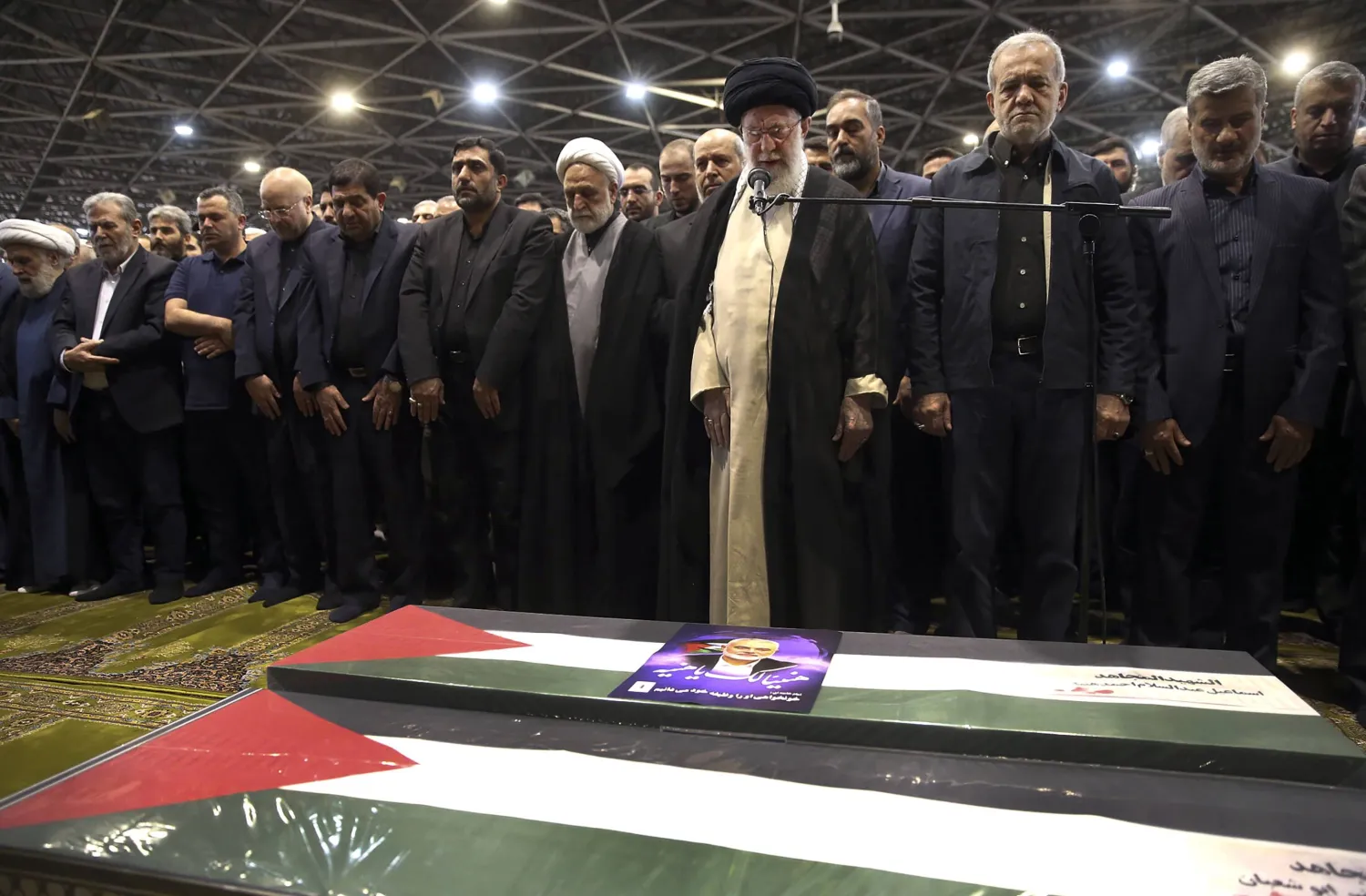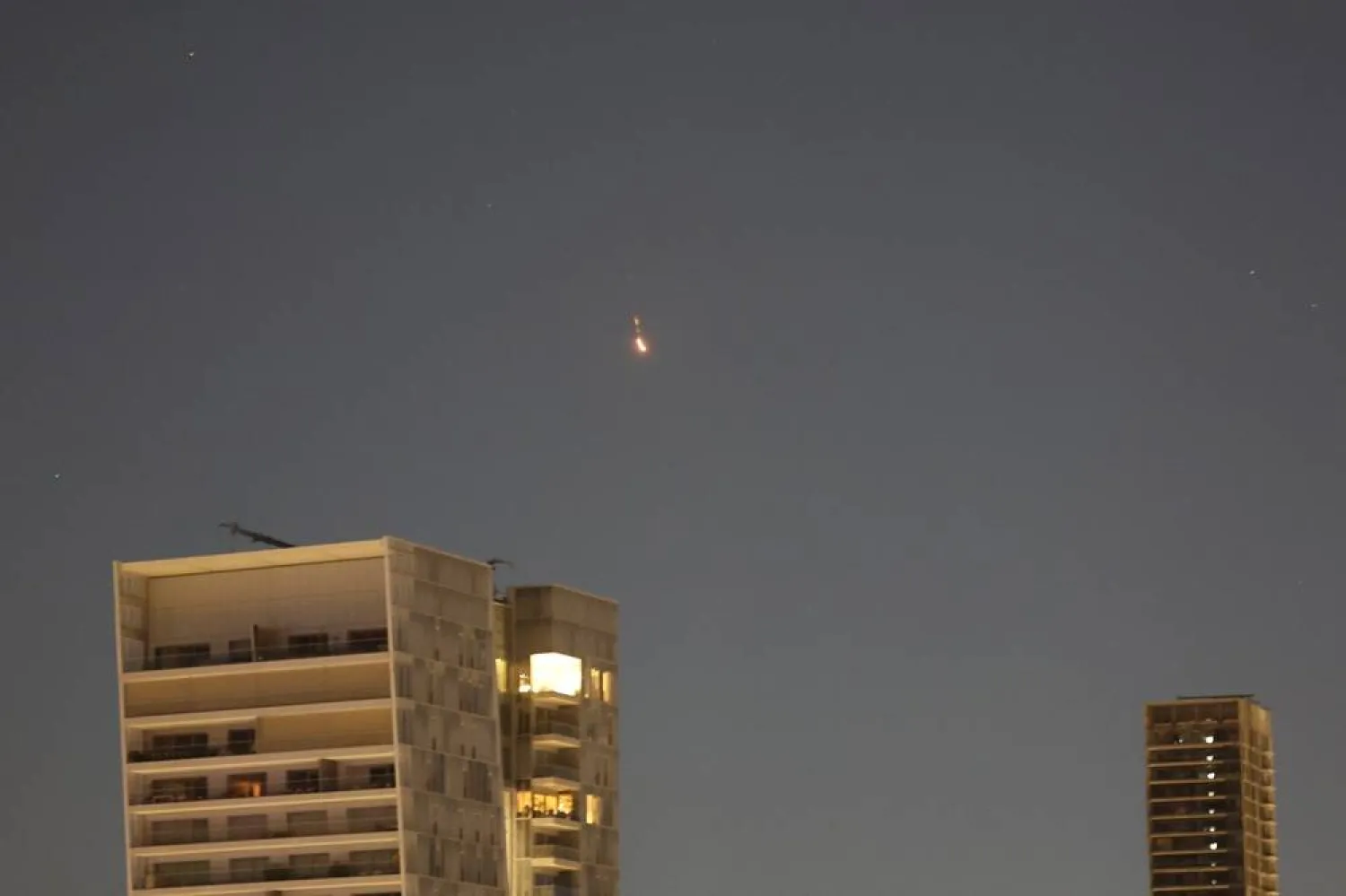Israeli authorities said on Thursday 68 sick and injured children and their companions have been allowed out of the Gaza Strip and into Egypt in the first medical evacuation since May, when the territory’s sole travel crossing was shut down.
COGAT, the Israeli military body responsible for Palestinian civilian affairs, said Thursday that the evacuation was carried out in coordination with officials from the United States, Egypt and the international community.
The children and their companions left the Gaza Strip via the Kerem Shalom crossing, and the patients were to travel to Egypt and further abroad for medical treatment.
The nearly nine-month Israel-Hamas war has devastated Gaza’s health sector and forced most of its hospitals to shut down. Health officials say thousands of people need medical treatment abroad, including hundreds of urgent cases.
Family members bade a tearful goodbye to the children as they and their escorts left the Nasser Hospital in the southern Gaza town of Khan Younis bound for the Kerem Shalom cargo crossing with Israel.
The Rafah crossing between Gaza and Egypt, the only one available for people to travel in or out, shut down after Israeli forces captured it during their operation in the city early last month.
Six of the children were transferred to the Nasser Hospital from Al-Ahli Hospital in Gaza City earlier this week. Five have malignant cases of cancer and one suffers from metabolic syndrome. That evacuation was organized by the World Health Organization, which could not immediately be reached for comment.
At a press conference at Nasser Hospital on Thursday, Dr. Mohammed Zaqout, the head of Gaza's hospitals, said the evacuation was conducted in coordination with the WHO and three American charities.
Zaqout said over 25,000 patients in Gaza require treatment abroad, including some 980 children with cancer, a quarter of whom need “urgent and immediate evacuation.”
He said the cases included in Thursday’s evacuation are “a drop in the ocean” and that the complicated route through Kerem Shalom and into Egypt cannot serve as an alternative to the Rafah crossing.
At Nasser Hospital earlier on Thursday, many of the families appeared anxious. Most relatives had to stay behind, and even those allowed to accompany the patients did not know their final destination.
Nour Abu Zahri wept as he kissed his young daughter goodbye. The girl has severe burns on her head from an Israeli airstrike. He said he didn’t get clearance to leave Gaza with her, though her mother did.
“It’s been almost 10 months, and there is no solution for the hospitals here,” he said.
Kamela Abukweik burst into tears after her son got on the bus heading to the crossing with her mother. Neither she nor her husband were cleared to leave.
“He has tumors spread all over his body and we don’t know what the reason is. And he constantly has a fever,” she said. “I still don’t know where he is going.”
In a post on the social media platform X, the World Health Organization regional director for the Eastern Mediterranean, Hanan Balkhy, welcomed news of the children's evacuation, but noted that “more than 10,000 patients still require medical care outside the Strip. Of the 13,872 people who have applied for medical evacuation since 7 October, only 35% have been evacuated.”
“Medical evacuation corridors must be urgently established for the sustained, organized, safe, and timely passage of critically ill patients from Gaza via all possible routes,” she said.
Israel’s offensive against Hamas, which runs the Gaza Strip, has killed over 37,700 Palestinians, according to Gaza’s Health Ministry, which does not differentiate between civilians and fighters in its count. Thousands of women and children are among the dead.
The war began with Hamas’ surprise attack into Israel on Oct. 7, in which militants killed some 1,200 people and took another 250 hostage.
On Thursday, the Israeli military ordered new evacuations from Gaza City neighborhoods that were heavily bombed and largely emptied early in the war. The latest orders apply to Shejaia and other neighborhoods where residents reported heavy bombing on Thursday.
First responders with Gaza’s Civil Defense said airstrikes hit five homes, killing at least three people and wounding another six. It said rescuers were still digging through the rubble for survivors.
Gaza City was heavily bombed in the opening weeks of the war. Israel ordered the evacuation of all of northern Gaza, including the territory’s largest city, later that month. Hundreds of thousands of people have remained in the north, even as Israeli troops have surrounded and largely isolated it.
Shejaia residents in a messaging group shared video showing large numbers of people fleeing the neighborhood on foot with their belongings in their arms.
International criticism has been growing over Israel’s campaign against Hamas as Palestinians face severe and widespread hunger. The eight-month war has largely cut off the flow of food, medicine and basic goods to Gaza, and people there are now totally dependent on aid. The top United Nations court has concluded there is a “plausible risk of genocide” in Gaza — a charge Israel strongly denies.









